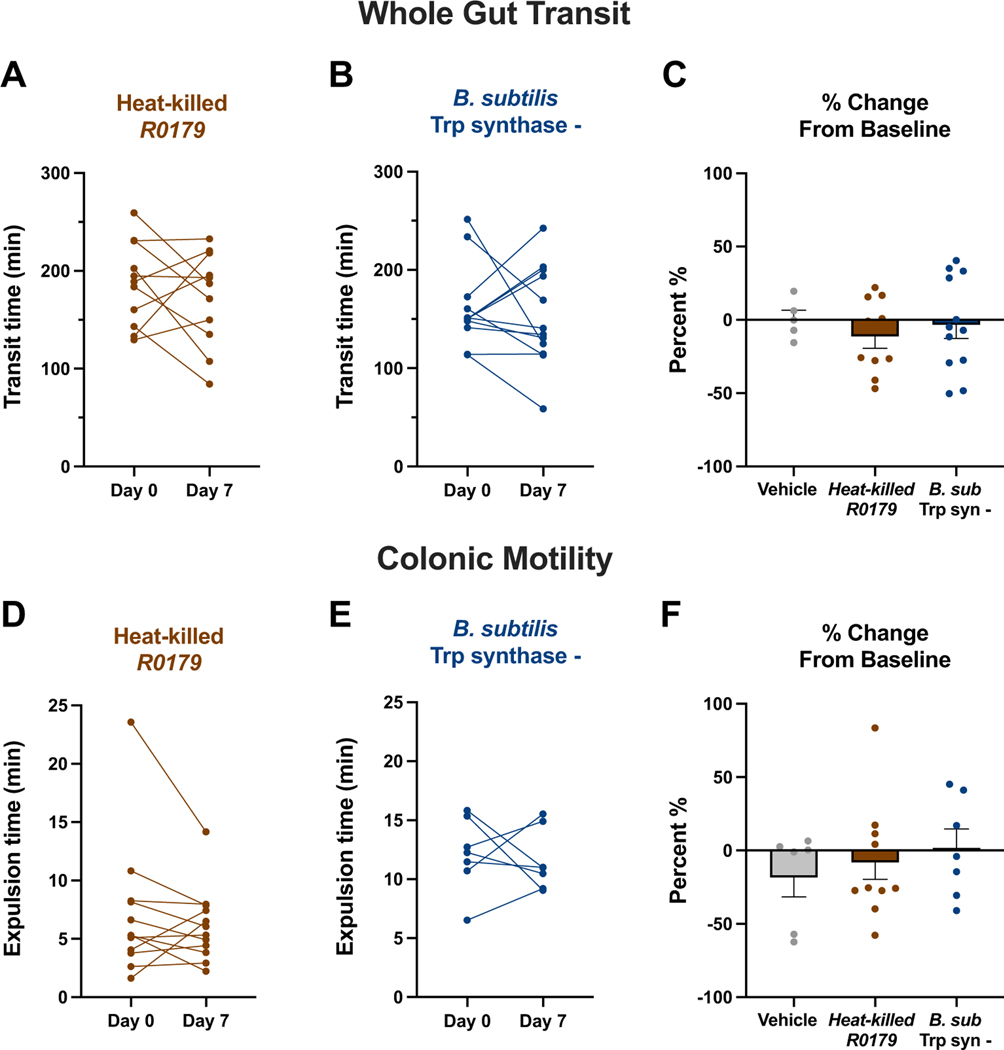Figure 4. Heat-inactivated B. subtilis R0179 and the non-Trp-synthesizing strain B. subtilis 1A2 treatments do not induce prokinetic effects on GI motility.
To assess whether the prokinetic effects of B. subtilis were due to the bacteria’s live nature as well as its Trp-synthesizing capability, motility was assessed following a week of treatment with either heat-inactivated B. subtilis R0179 or with the tryptophan synthase lacking strain B. subtilis 1A2 (B. sub Trp syn-). (A-C) Mice that received heat-inactivated B. subtilis R0179 (n=11) or B. subtilis 1A2 (n=12) did not exhibit changes in whole gut transit time after a week of treatment. These treatment groups were not significantly different from each other or vehicle (n=5) in percent change from baseline. (D-F) In addition to whole gut transit, there was no significant change in colonic motility times in mice treated with either heat-inactivated B. subtilis R0179 (n=12) or B. subtilis 1A2 (n=7). Furthermore, there were no differences between both bacteria treatments or vehicle (n=6). Data are shown as individual animals (A,B,D,E), paired Student’s t-test, or mean ± SEM (C,F), one-way ANOVA with Tukey’s post-hoc multiple comparisons test.

